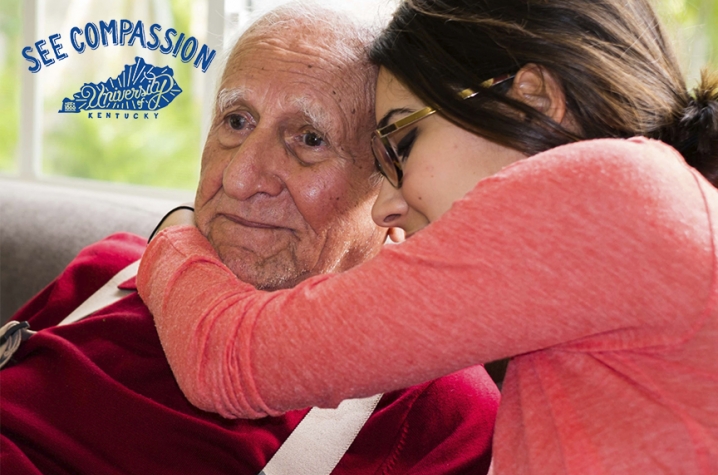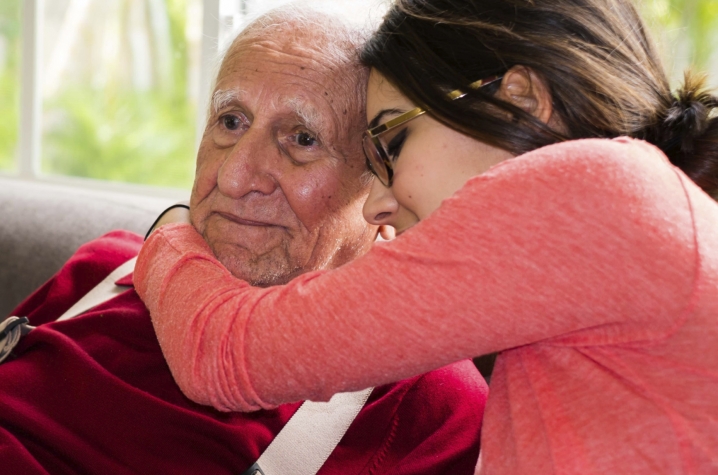UK Study Examines Communication and End-of-Life Decisions
[youtube]
Video produced by Reveal — University Research Media. To view captions for this video, push play and click on the CC icon in the bottom right hand corner of the screen. If using a mobile device, click on the "thought bubble" in the same area.
LEXINGTON, Ky. (Nov. 24, 2014) — For many people, talking about end-of-life decisions can be very difficult. Although making choices about health care at the end of life is an important outcome of these conversations, recent research suggests that talking about end-of-life choices with family members in a way that pays attention to how they perceive themselves and maintains your relationship with them may be more important than actually reaching decisions.
Allison Scott, assistant professor at the University of Kentucky College of Communication and Information, focuses her research on the quality of communication about end-of-life health decisions. In her study published this year in Communication Monographs, "Enacted Goal Attention in Family Conversations about End-of-Life Health Decisions,” Scott and co-author John Caughlin, professor and department head at the University of Illinois at Urbana-Champaign, used a multiple goals theoretical perspective to demonstrate that the quality of communication about end-of-life decisions matters. Members of 121 older parent/adult child dyads (N = 242) engaged in an elicited conversation about end-of-life health choices and reported their assessments of the conversation. Scott and Caughlin found that people who paid better attention to task, identity, and relational goals were more satisfied with the conversation, felt more hopeful after the conversation, experienced less hurt after the conversation, and felt less relationally distanced after the conversation.
“The way an end-of-life discussion is negotiated has the potential to strengthen or undermine relationships,” says Scott. “Family communication holds a great deal of potential for improving end-of-life health care, but this potential lies in the quality of the discussions.”
For a complete pdf version of the study, contact Allison Scott at Allison.Scott@uky.edu.
MEDIA CONTACT: Ann Blackford at ann.blackford@uky.edu






